We may earn revenue from the products available on this page and participate in affiliate programs. Learn More ›
I live in Salt Lake City where the first thing you ask someone isn’t what they do for work or where they’re from, it’s “What sports are you into?” And mountain biking is one of the most popular answers. It satisfies those adrenaline cravings, and keeps you in shape.
Along with four testers, I rode all-rounder full suspension bikes that are capable of peddling up and fun to rip downhill. It’s hard to get on these bikes; shops might let you take a lap around the block but testing them on real terrain is a different story. So we tested the best mountain bikes to give you an idea of what they’re capable of on trail.
- Best Overall: Specialized Stumpjumper
- Best Downhill: Santa Cruz Bronson
- Best for Women: Juliana Furtado
- Best E-Bike: Santa Cruz Heckler
- Best Trail: Orbea Rallon
- Best Budget: Rossignol Trail Mandate EX
If you want to know how to choose the best mountain bike, jump to that section here.
How We Tested the Best Mountain Bikes

Ashley Thess
Five testers took out the best mountain bikes to get a feel for pedaling efficiency, maneuverability, and adaptability. The best bike for you should be confidence inspiring; you’re in control instead of the bike taking you for a ride. We noted how the bikes handle different terrain, and inspected the geometry and suspension.
Testers
We had three women of varying skill sets on medium bikes: the sendy, tech-loving Oksana Boyuk, trail and cross-country fanatic Tilly Taylor, and myself, a beginner trail biker. Tyler Vella and Spencer Rosero, our two male testers, rode large and extra-large bikes and are passionate downhill riders.
Bikes
The five of us were able to ride new top of the line models thanks to local gear retailer, bike and ski shop, and host of other things (hotel, skatepark, bouldering gym, etc.), Evo Salt Lake. Their campuses in Seattle, Denver, and Salt Lake City are one stop shops for tuning, renting, and buying bikes. Their smart and dedicated staff got us set up with brand new demos, just begging to get dirty.
Terrain
We took each bike on two laps of green, blue, and black trails. We took the best mountain bikes on jumps, rock gardens, and berms. This variety gave our resident bike experts enough of a feel for each kit to determine where and why it would excel on tech, cross country, all-mountain, and enduro trails.
Best Mountain Bikes: Reviews & Recommendations
Best Overall: Specialized Stumpjumper
Key Features
- Travel: 140mm fork/130mm rear
- Wheel Size: 29
- Carbon or alloy frame options
- SWAT technology downtube storage
Pros
- Lightweight
- Responsive
Cons
- Dropper post
The alloy version of the Stumpjumper is one of the most affordable, quality mountain bikes on the market, making it extremely popular. The carbon version that we tested felt great on corners with predictable maneuvering. It’s lightweight and reactive for versatile riding.
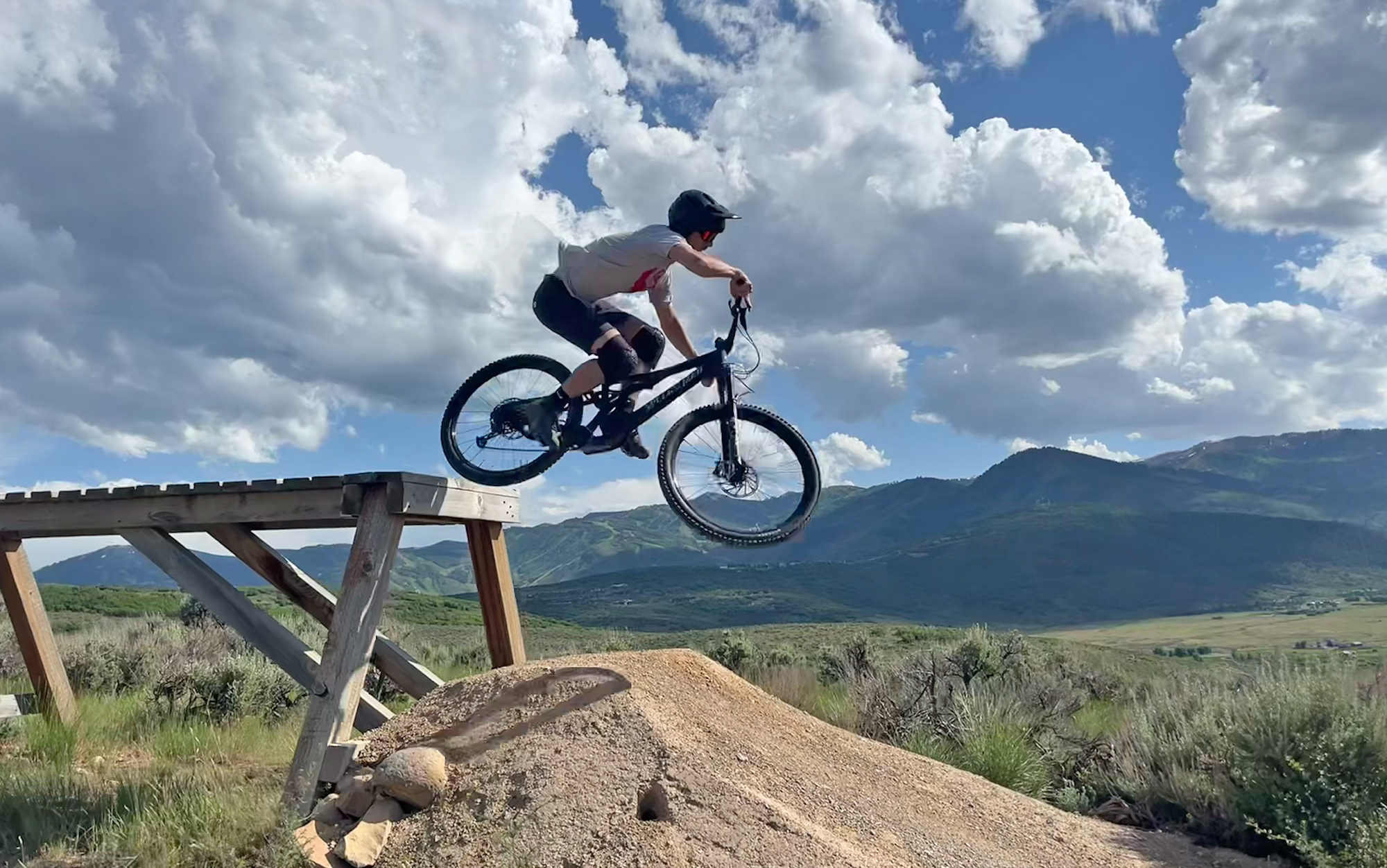
Ashley Thess
Specialized replaced the tried-and-true horst link with a flexing section of the frame to reduce weight and let the rear of the bike move more freely, which makes the bike even more responsive to your weight. The Stumpjumper is poppy, but doesn’t handle chunk as well. Expect to be a little choosey on techier lines due to the shorter travel.
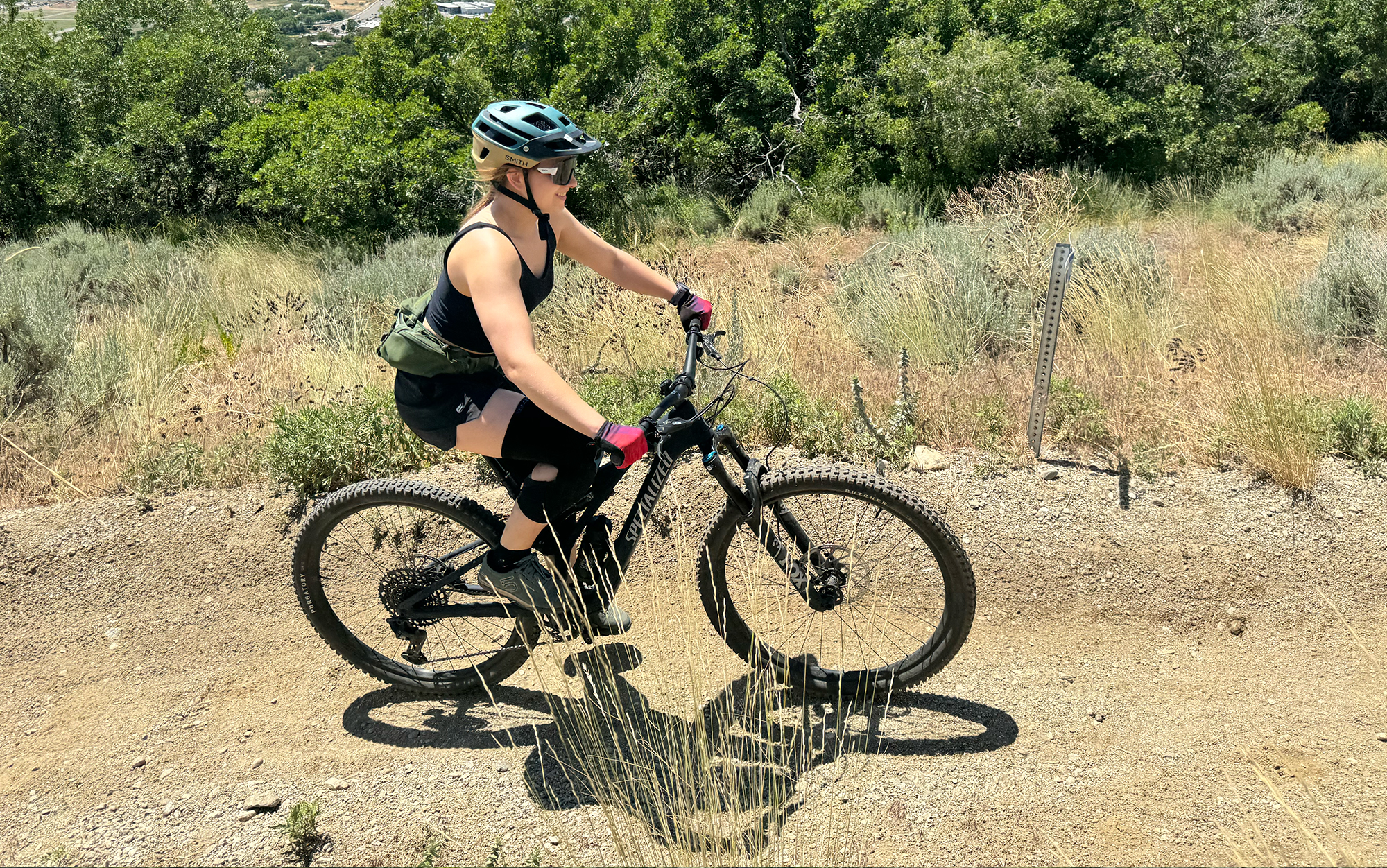
Ashley Thess
As a new rider with sometimes poor body positioning, this did take me some getting used to. However, the more experienced testers loved how fluid and adaptable the Stumpjumper is. Boyuk thought her weight was centralized nicely and it was a pleasure to peddle.
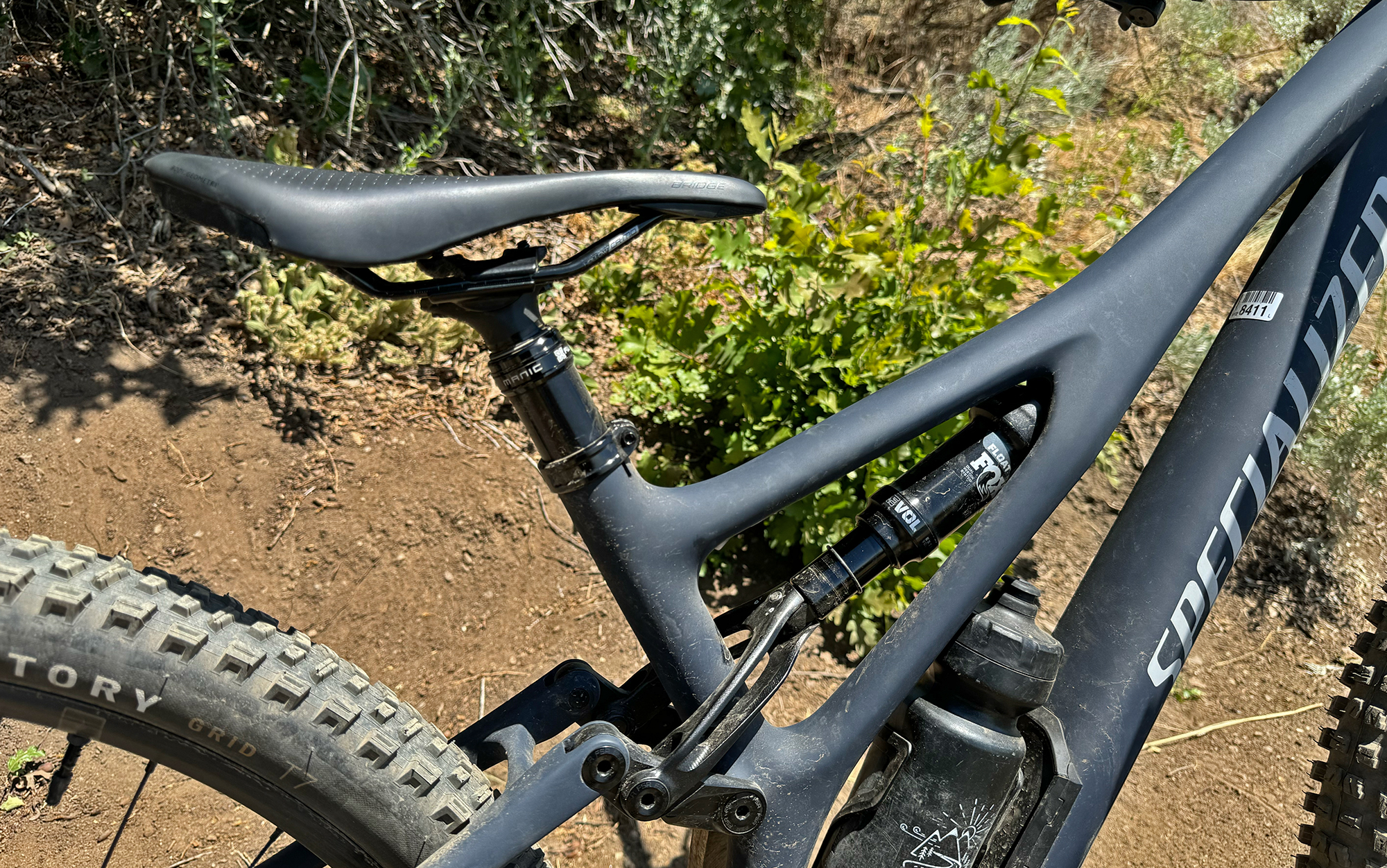
Ashley Thess
The dropper post is extremely stiff, and the Evo bike specialist agreed that it can be a hassle to adjust as well. The cable is inside the dropper post which takes some fiddling to access, and if it snaps, you’re SOL.
Best Downhill: Santa Cruz Bronson
Key Features
- Travel: 160mm front/150mm rear
- Wheel Size: XS: 27.5, S-XL: 29 front and 27.5 rear
- Lower-link mounted VPP suspension
- Carbon C frame
- Integrated flip chip for high or low geometry setting
- Storage
Pros
- Fast
- Poppy
- Stable
Cons
- Not the best climber
“This bike wants to be in the air,” said Taylor after getting the most air she’s ever gotten on the size medium Bronson. A borderline enduro bike, Santa Cruz’s Bronson is a mullet, meaning the front wheel is larger than the back wheel. This design lends itself to better cornering and poppier jumps. The 160mm of travel provides a stable landing.
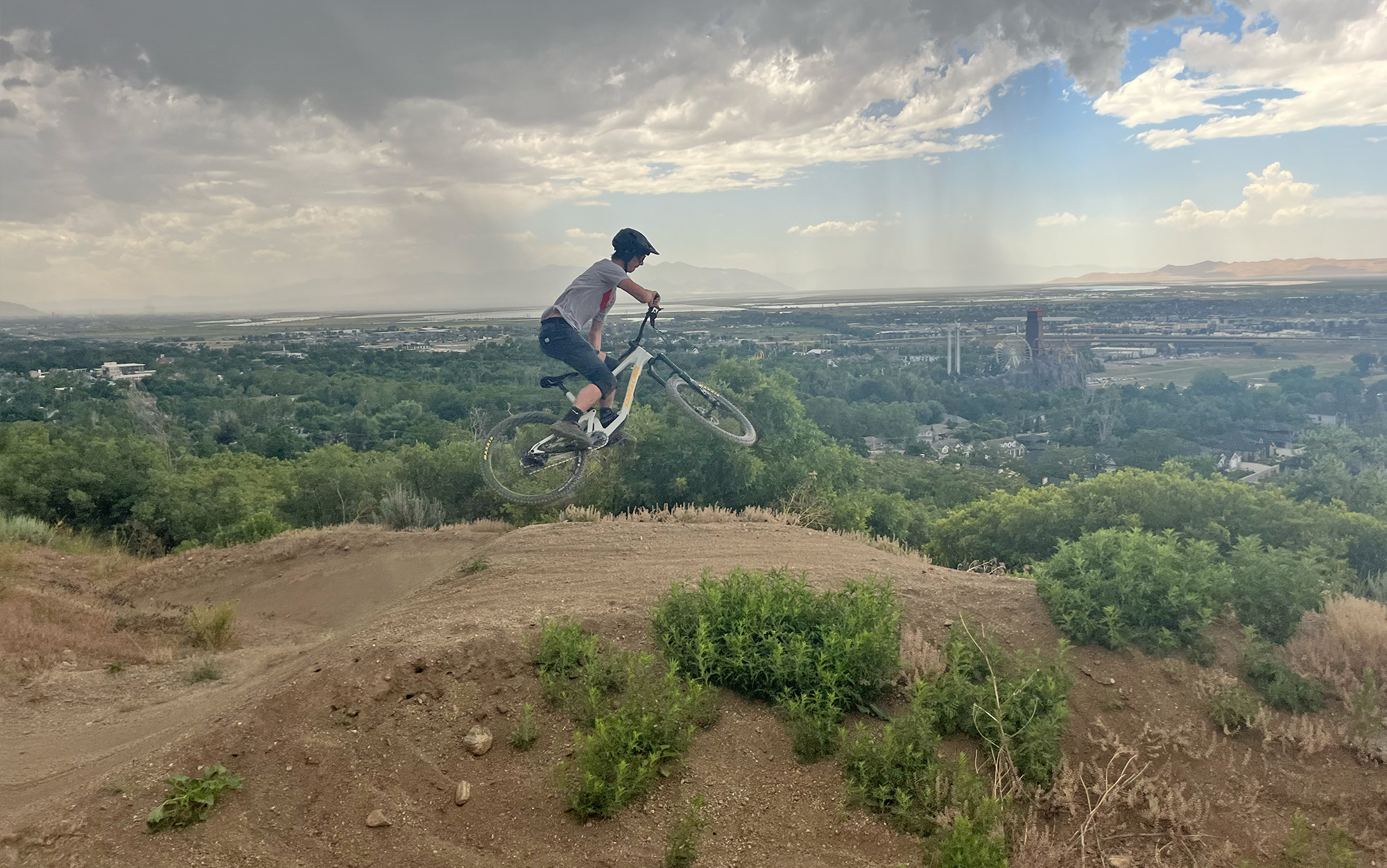
Ashley Thess
The wheels and frame geometry put your weight in the back, and in conjunction with the linkage system, encourages speedy and highly capable descents. By mounting the shock lower the rider can enjoy more flexibility as two short links rotate in opposite directions for a gnarly downhill rig.
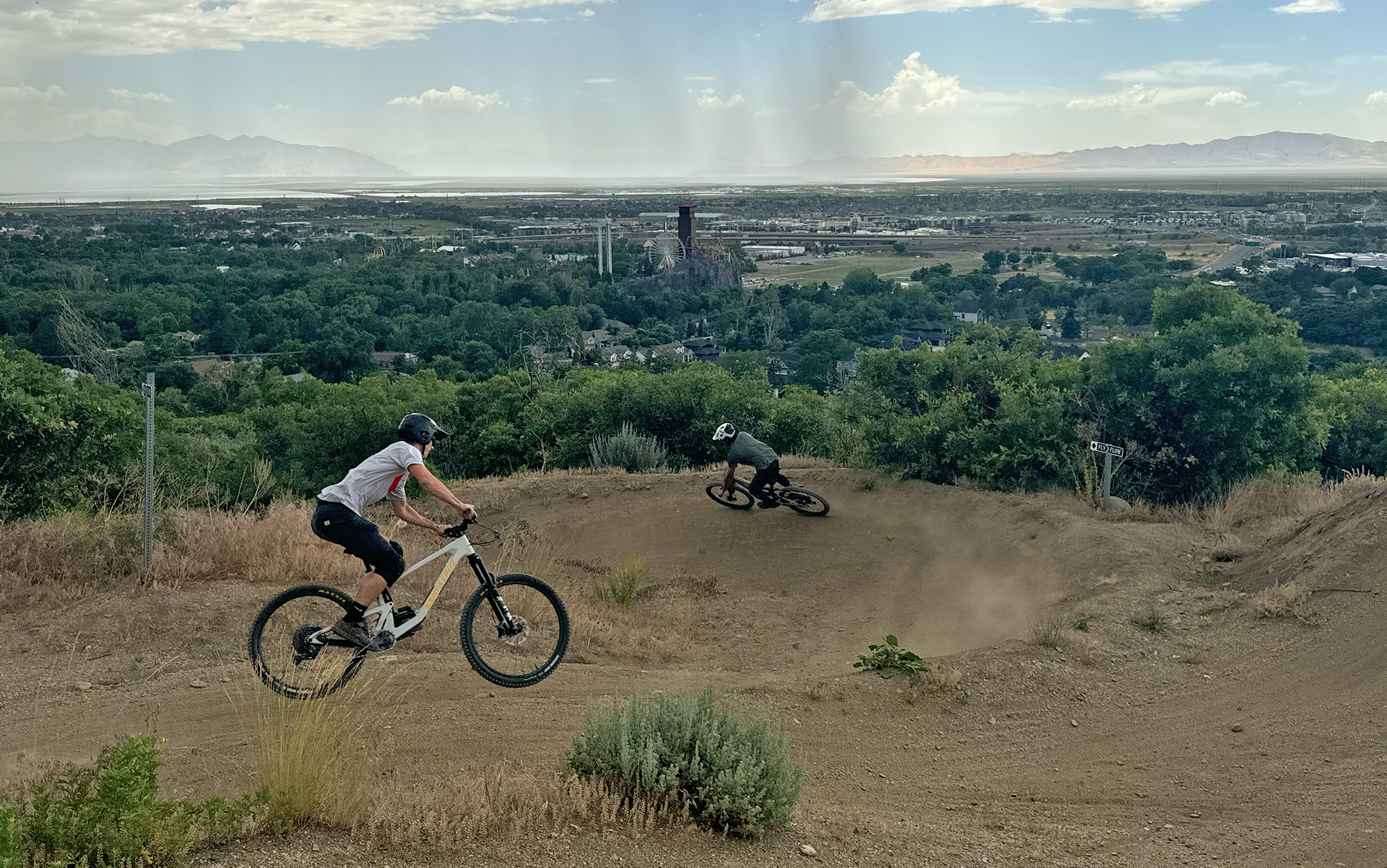
Ashley Thess
It wasn’t the best climber in the test and the women noticed a longer reach, possibly because this bike rides with your weight in the back. The Bronson is your pick for the gravity park and lift access trails, but it’s capable on trail, too. Boyuk is in the market for an upgrade and chose the Bronson as her favorite. Even Vella, who loves to hate Santa Cruz because it’s such a popular brand, couldn’t deny that this bike is a menace downhill.
Best for Women: Juliana Furtado
Key Features
- Travel: 140mm front/130mm rear
- Wheel Size: 29 front/27.5 rear
- Carbon CC frame
- Lower-link mounted VPP suspension
- Downtube storage
Pros
- Flowy
- Fast
- Lightweight
Cons
- Better for more experienced riders
Julianas are the first mountain bikes made for women. While nearly identical to the Santa Cruz 1050, the Furtado is marketed towards women with a women’s saddle and different grips and colorways. Its shock tune is also slightly lower as women tend to weigh less.
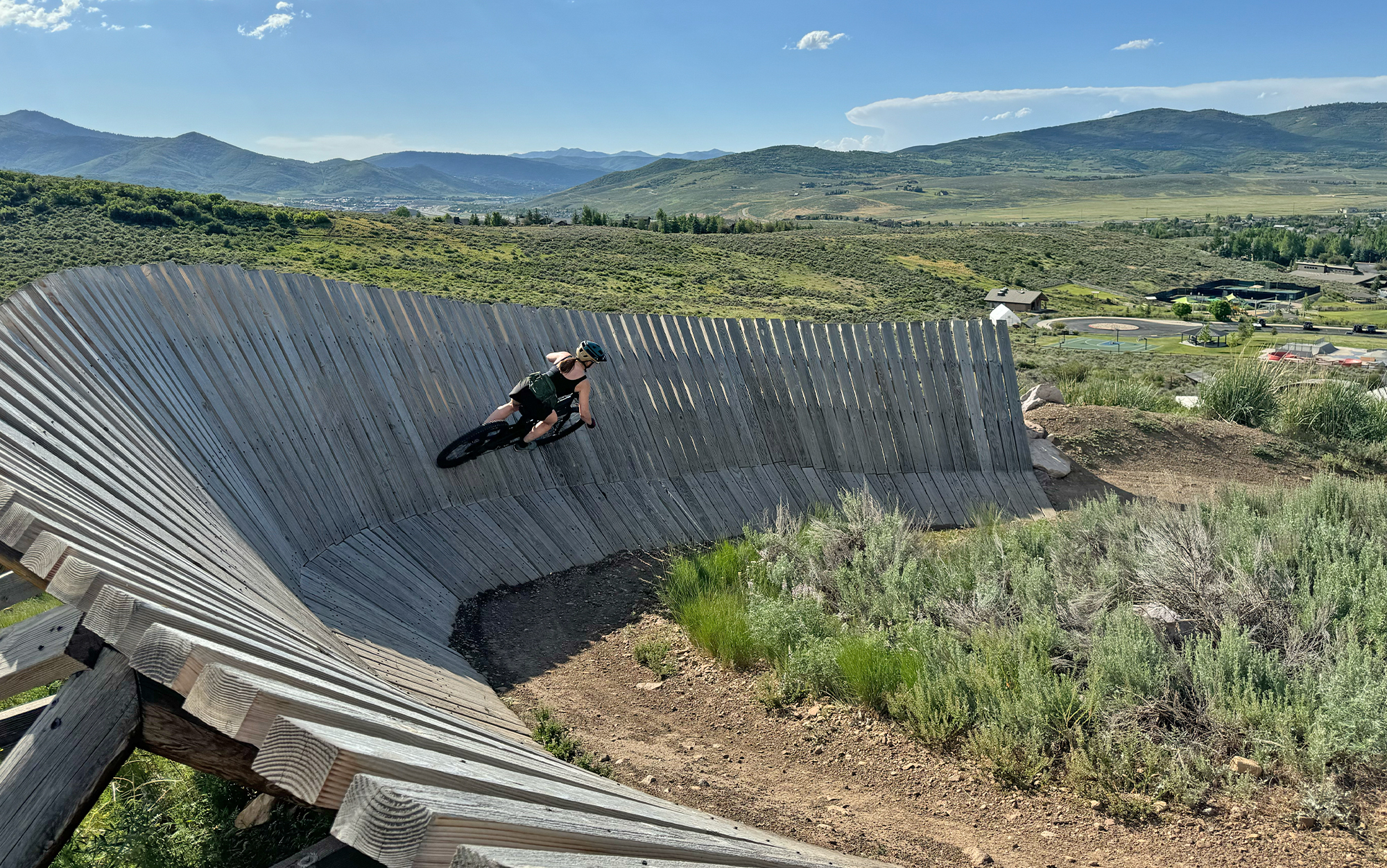
Ashley Thess
The Furtado is a great climber, conquering techy terrain with ease. It’s lightweight and rides with your weight in the back for getting air and speedy descents. I thought the Furtado was almost too fast and light to control. This bike certainly took me for a ride, and I’d recommend it for intermediate to expert riders.
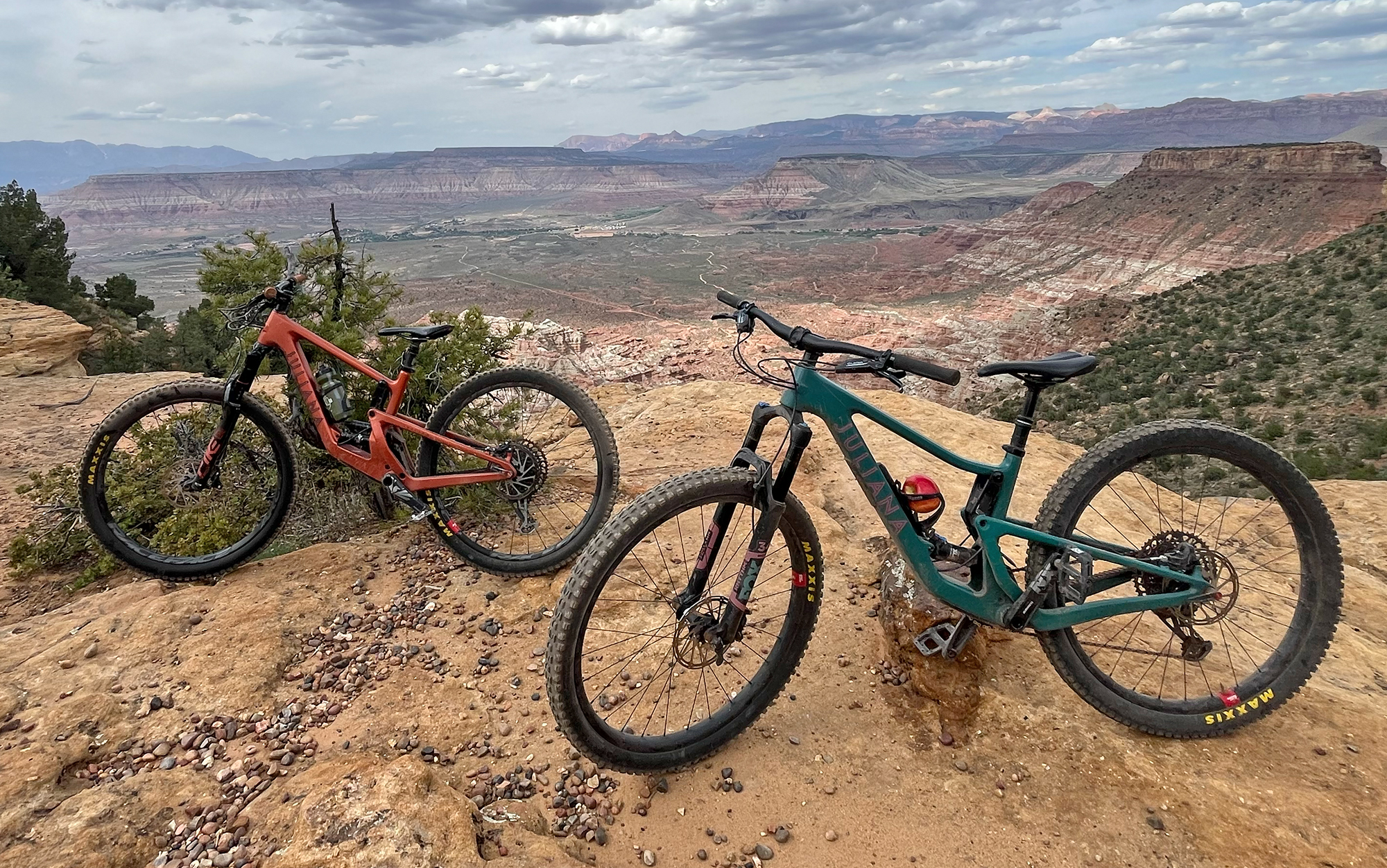
Emily Vella
Experienced riders love this bike; it’s adaptable to any terrain and an efficient climber. The mixed wheels offer control on the downhill, but it also eats whatever ground you put in front of it.
Best E-Bike: Santa Cruz Heckler
Key Features
- Travel: 160mm front/150mm rear
- Wheel Size: 29 front/27.5 rear
- Carbon C frame
- Lower-link mounted VPP suspension
- Top tube integrated LED display
- Fazua Ride 60 drive unit
- Fazua 430Wh integrated battery
Pros
- Battery powered
- Lightweight for an e-bike
- Solid frame design
Cons
- Lights are difficult to see
- Weight takes some getting used to
The Heckler is a capable trail bike with an electric motor attached. The pedal assist allows you to keep up with your friends or pedal farther, faster with Santa Cruz’s respected frame design, significant travel, and mullet wheels. It’s also incredibly lightweight for an e-bike. Dedicated riders can self-shuttle and anyone can appreciate a little help on long climbs, or bust out a ride faster than you could on manual.
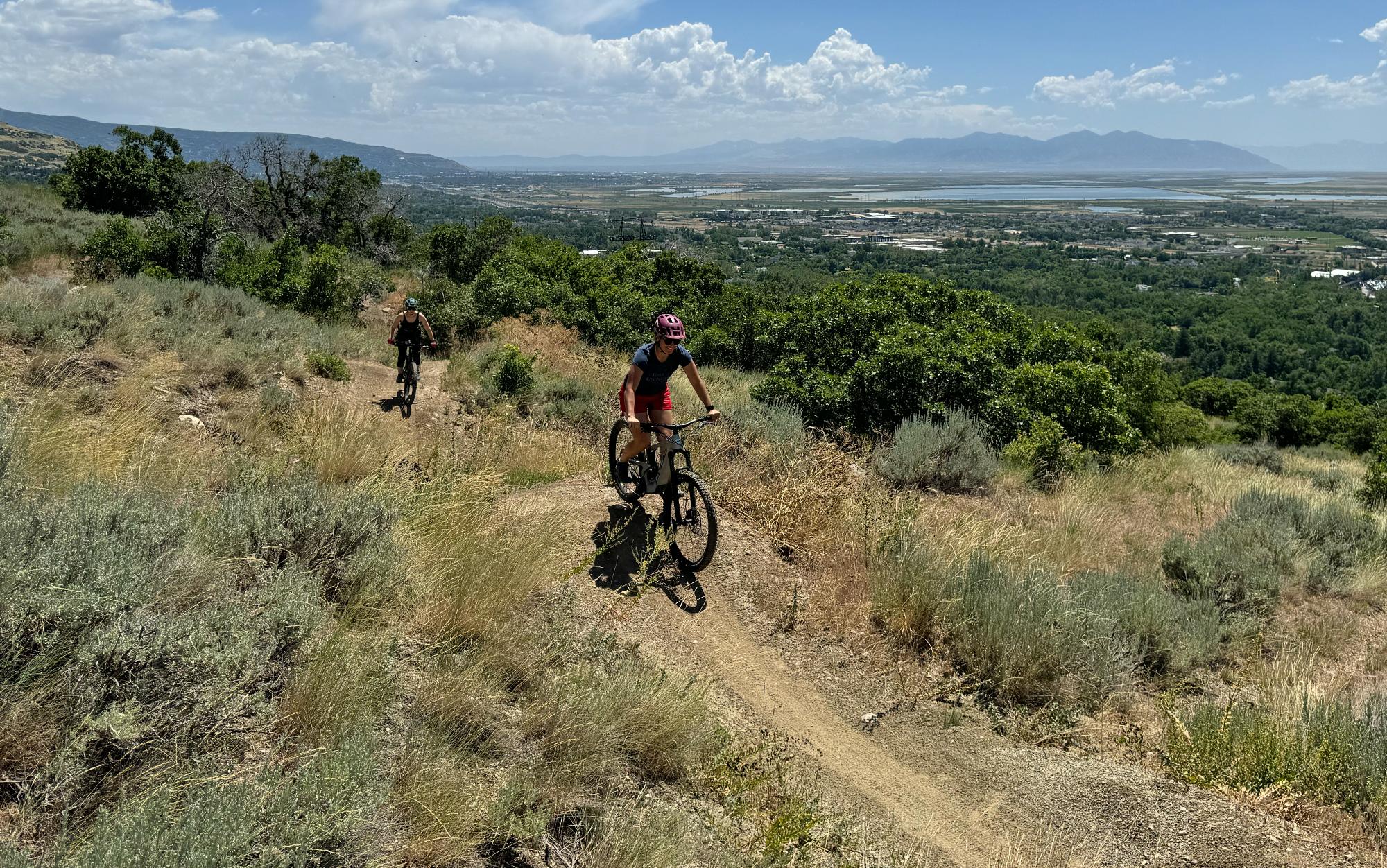
Testers determined that there is a lot of potential in this bike, but you’ll need to spend some time getting used to the controls and weight, especially on the downhill. While it is impressively lightweight for an e-bike, the extra heft of a battery still comes with a learning curve.
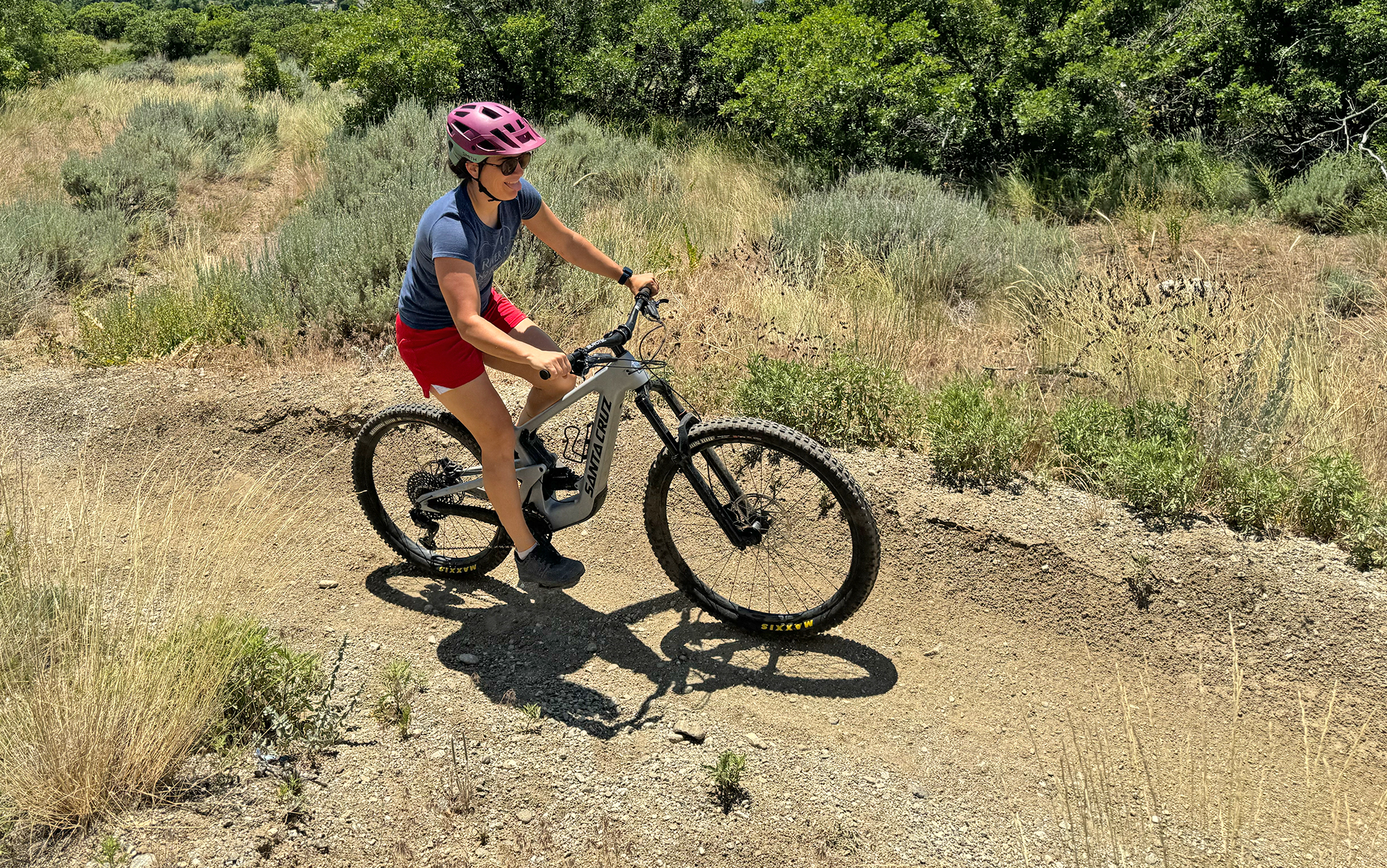
Ashley Thess
Lights on the top tube display the battery charge and three ride modes. Taylor and I both struggled to differentiate the white “on” mode and blue “medium” speed mode in sunlight. To increase your speed you push a switch upwards on the handlebars. This is counterintuitive compared to a throttle or button that you pull toward you or push down. I suspect this design choice is so you can’t easily bump the switch down, unintentionally increasing your speed, but it takes some getting used to.
Best Trail: Orbea Rallon
Key Features
- Travel: 170mm front/167mm rear
- Wheel Size: 29, or 29 front, 27.5 rear
- Carbon frame
- Three Lockr zones
Pros
- Whippy in the air
- Storage
- Slack geometry
Cons
- Slight bob uphill
The Orbea Rallon has a trail bike feel with enduro suspension. The mullet wheels and slacker geometry offers more control and planted riding. Rosero thought the Rallon was smart, light, and whippy in the air with a generous amount of travel.
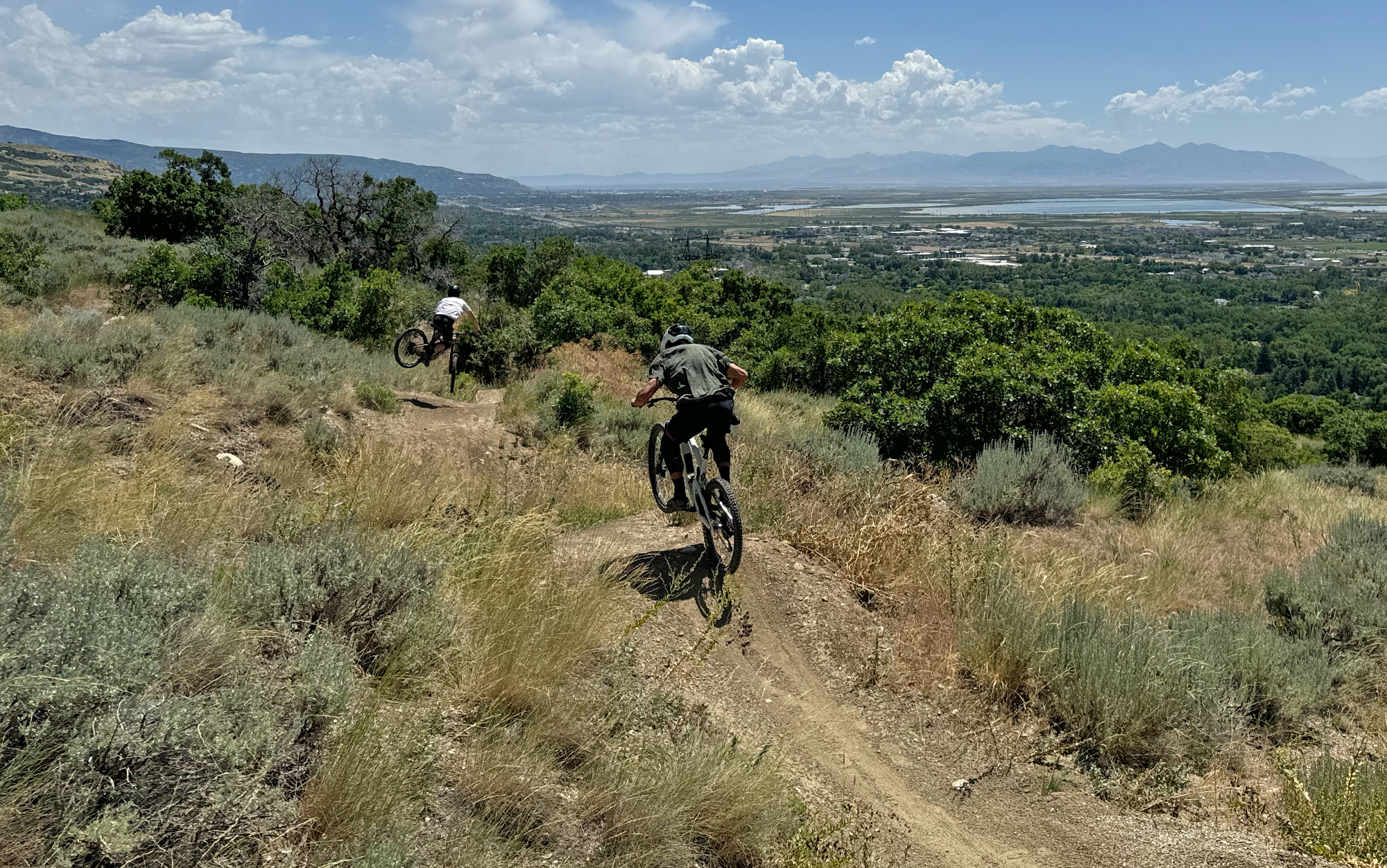
Ashley Thess
This trail bike’s long travel offers a better pedaling position for climbing and Vella thought it shined on the uphill, but Rosero experienced a slight bob. He theorized that because the shock is mounted higher, it contracts the back wheel, shortening the chain. Rosero also pedal striked twice, likely due to the slacker geometry that gives the Rallon such a stable trail bike feel.
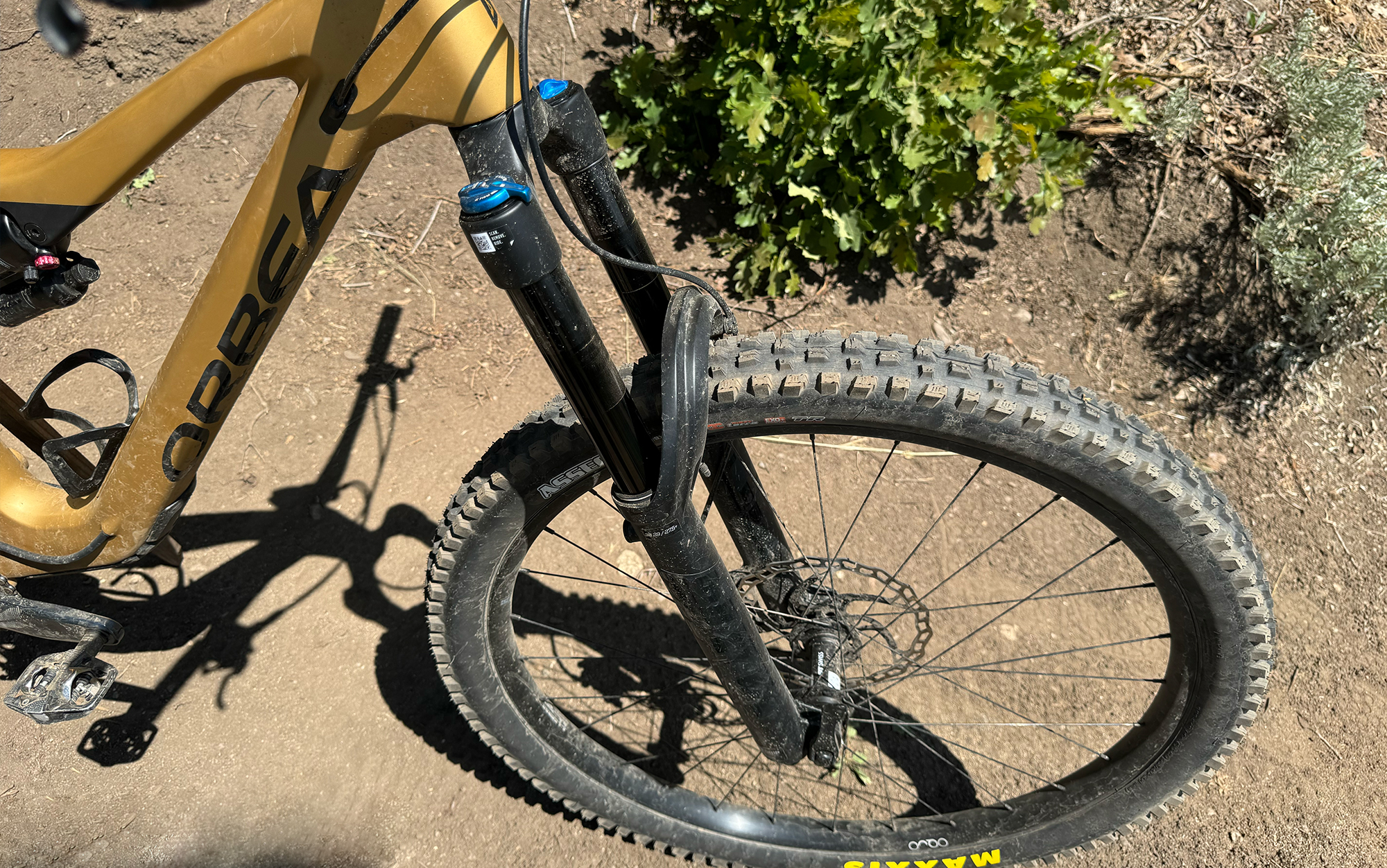
Ashley Thess
Testers thought the Rallon was playful in the air and capable on chunk. There is also a water bottle holder, downtube storage, and a tube, tire repair, and hex keys from 3 to 6mm in the main pivot and rear axle for packless riding.
Best Budget: Rossignol Trail Mandate EX
Key Features
- Travel: 140mm
- Wheel Size: XS-S: 27.5, M-XL: 29
- Aluminum alloy frame
- Horst link suspension
Pros
- Responsive
- Nimble
Cons
- Aluminum frame is heavier
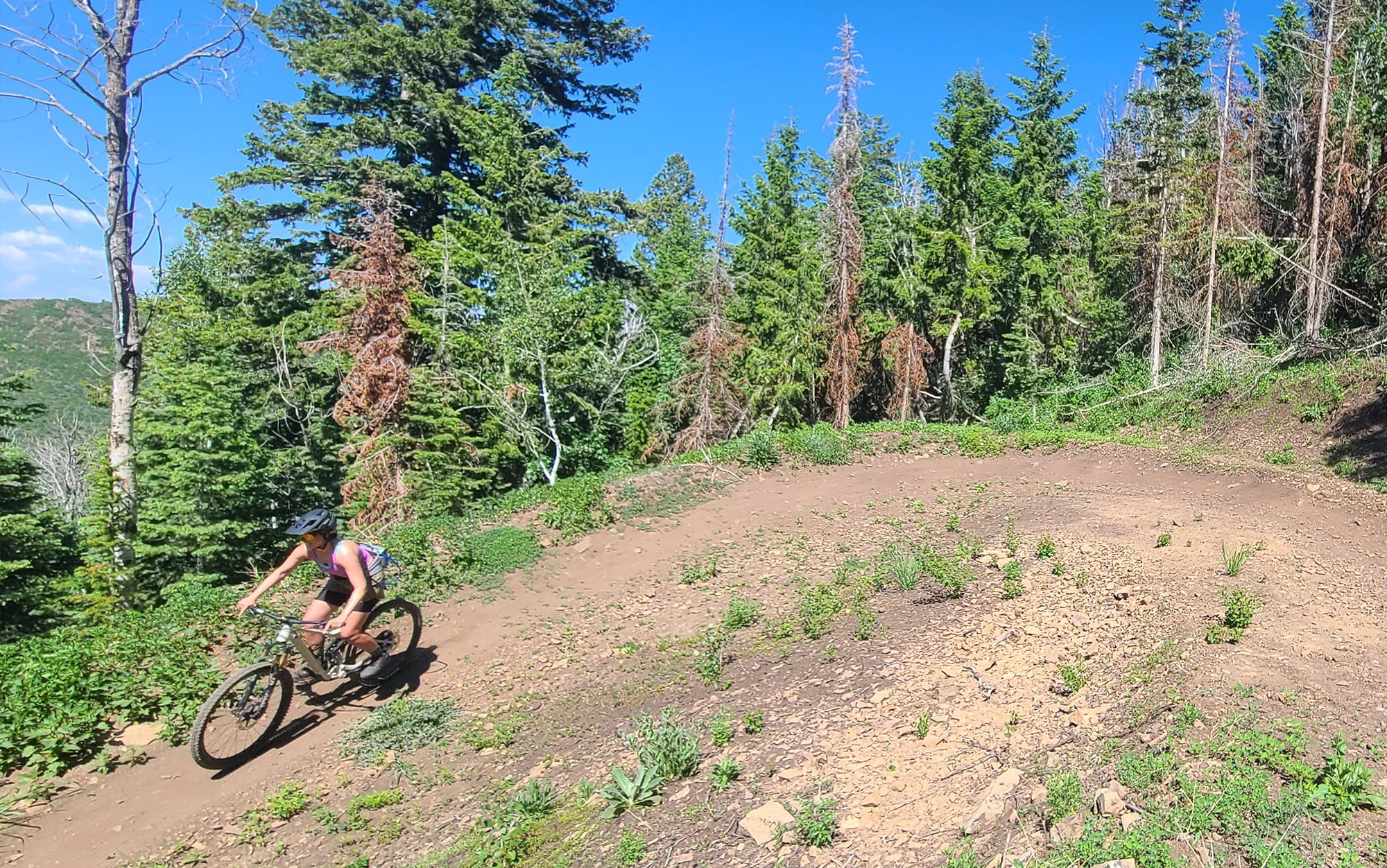
Tyler Vella
Budget is a relative term when it comes to the best mountain bikes. But Rossignol’s Trail Mandate has a reliable Horst linkage and budget-friendly aluminum frame. There’s still room for progression at a fair price thanks to Rossignol’s straight to consumer business model. The Trail Mandate is slender and sleek with a fresh white paint job and the shorter travel keeps weight down.
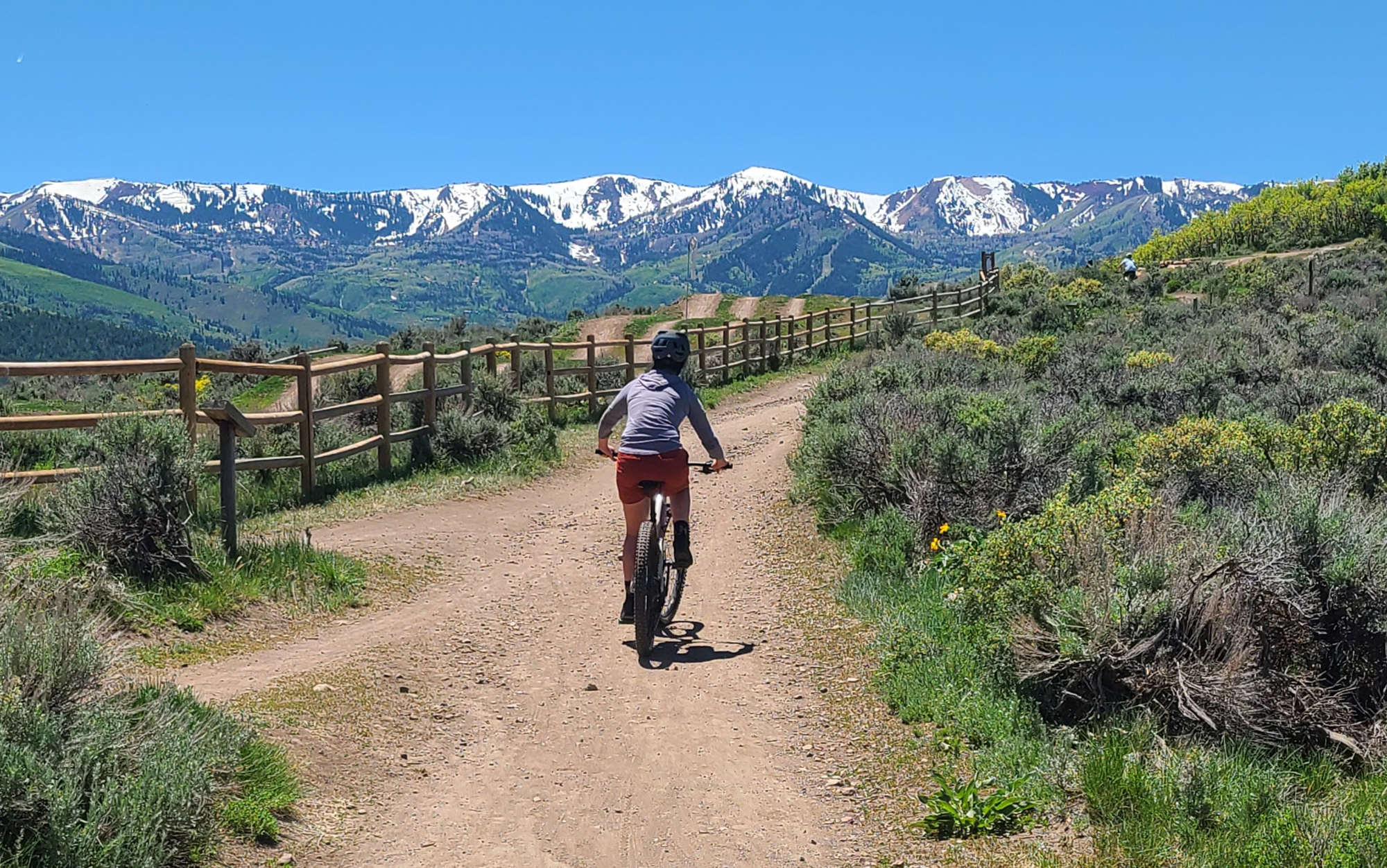
Tyler Vella
I found the bike a little too responsive as I constantly readjusted. Taylor also thought it was overly sensitive on the climb, but maneuverable and playful on the down. This bike isn’t taking any risks in frame design, but it’s simple, speedy, and fairly priced.
Read Next: Best Hiking Fanny Packs
Things to Consider Before Buying One of the Best Mountain Bikes
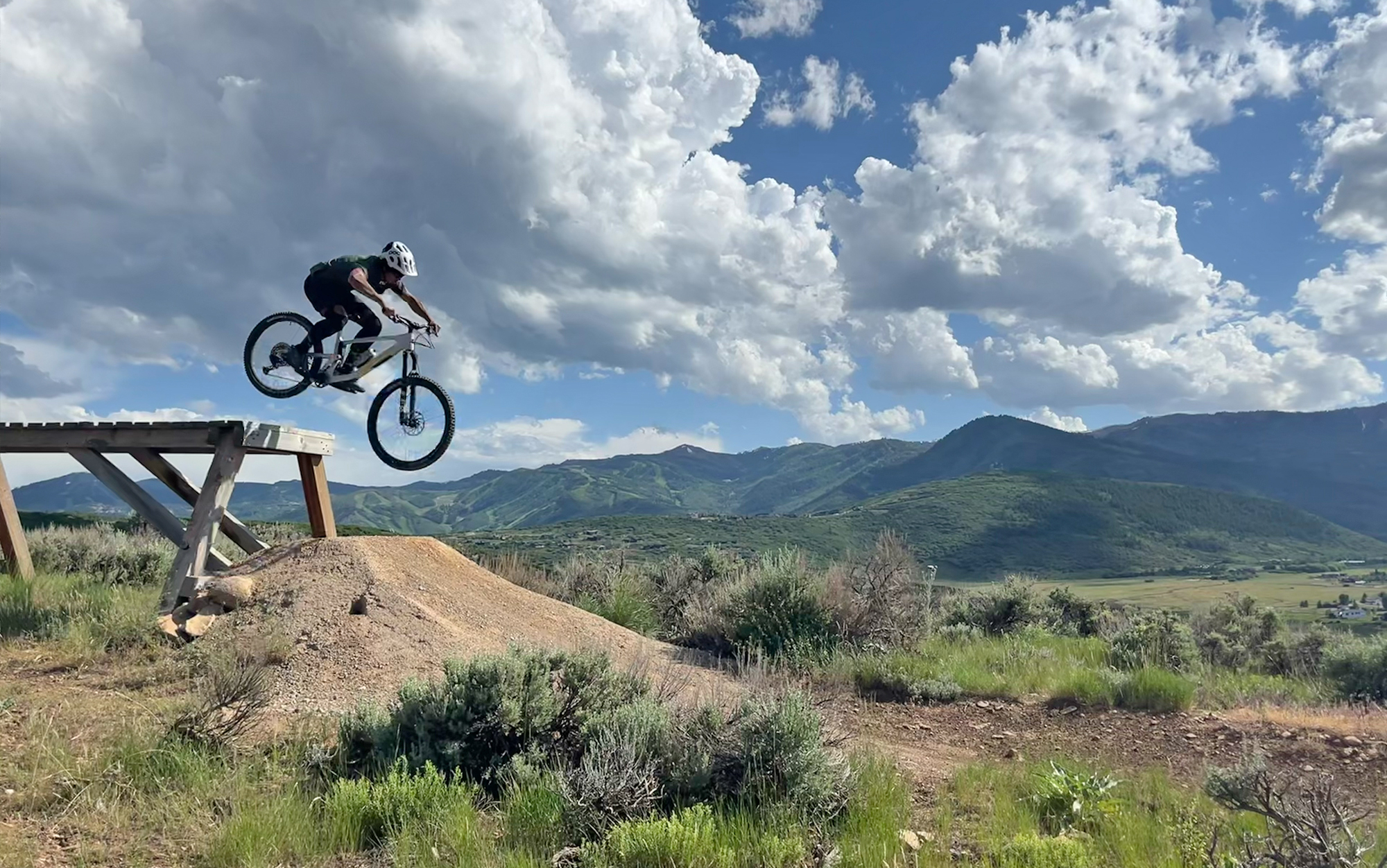
Ashley Thess
Suspension
Full suspension bikes are the most capable, but a hardtail (only front suspension) is lighter and more efficient on the uphill. This article focused entirely on full suspension models because a plush rear shock adds control on descents and on any trail more difficult than a blue, it’s almost a necessity. On the local terrain we tested on, a full squish makes for a more comfortable and enjoyable ride.
Some hardtails are more capable than others, but with the extra suspension, there’s a larger margin of error on gravity specific trails. You can’t case (roll over) a jump without a rear shock. For black trails, you want a minimum of 140mm of travel in the front shock. Shorter travel bikes feel fun and poppy on flowy trails, but start to feel choppy on chunder, and sometimes even bottom out. Bikes with longer travel eat whatever terrain dares roll underneath.
Wheel Size
Mullets, a large wheel in the front and a small wheel in the back, are the big new thing, as everyone wants the best of both worlds. Smaller wheels provide more control and play, while larger wheels can handle larger terrain and less rolling resistance. However, some mullets don’t extend into extra small sizing as larger wheels are harder to control for smaller people.
Build Kits
The best mountain bikes come with different build kits, meaning the brand name on your bike is responsible for the frame geometry, materials, and design, but the suspension, brakes, pedals, seat, handlebars, wheels, and drivetrain are all components from companies specialized in those parts. That’s why you won’t find weights listed in the specifications in this article; it depends on your kit.
Each build kit can change the bike experience, but this is an instance where you get what you pay for. More expensive build kits are lighter with higher quality components. Of course, experienced riders have their favorites and it’s up to your discretion to find a kit that will aid in what you’re trying to do with your bike.
Final Thoughts on the Best Mountain Bikes
There’s something for everyone looking to progress on one of the best mountain bikes. For beginner to intermediate riders, the Stumpjumper livens up blue terrain for chiller downhills and poppy trails. If you’re looking to shred gnarly tech and steep descents, the Bronson eats. The Juliana Furtado is the first (and best) mountain bike made for women. Anyone looking for pedal assist will be thrilled with the best in class Heckler e-mountain bike.
- Best Overall: Specialized Stumpjumper
- Best Downhill: Santa Cruz Bronson
- Best for Women: Juliana Furtado
- Best E-Bike: Santa Cruz Heckler
- Best Trail: Orbea Rallon
- Best Budget: Rossignol Trail Mandate EX









